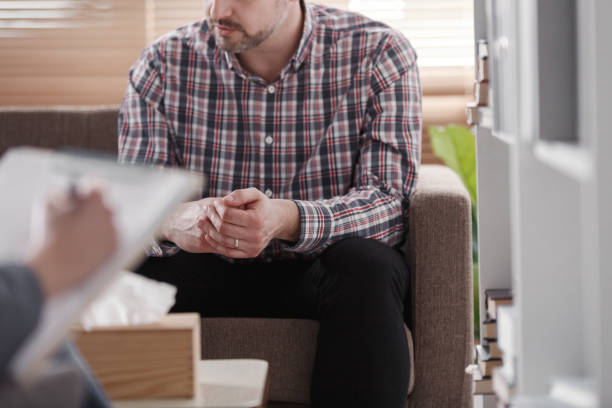Low libido, or decreased sexual desire, can significantly impact an individual’s overall well-being and intimate relationships. It is a common concern faced by many, transcending age, gender, and background. Addressing this issue requires a nuanced understanding of underlying causes and tailored treatment approaches. If you’re seeking expert guidance, a Sexologist in Abu Dhabi specializes in diagnosing and managing such concerns with a comprehensive, personalized approach.
In this blog, we will explore how sexologist doctors treat low libido, the various methods they employ, and what to expect during treatment. Understanding these processes can empower individuals to seek help confidently, fostering healthier relationships and improved quality of life.
Understanding Low Libido and Its Causes
What Is Low Libido?
Low libido refers to a diminished interest in sexual activity that is inconsistent with an individual’s age, health, and personal preferences. It may manifest as infrequent sexual thoughts, reduced desire for intimacy, or a lack of interest in sexual activity altogether. Recognizing that libido varies naturally among individuals is important, but persistent or distressing low desire warrants professional attention.
Common Causes of Low Libido
Multiple factors can contribute to decreased sexual desire, including:
- Hormonal Imbalances: Fluctuations in hormones such as testosterone, estrogen, and progesterone can influence libido.
- Psychological Factors: Stress, anxiety, depression, and past trauma often impact sexual interest.
- Relationship Issues: Communication gaps, unresolved conflicts, or emotional distance can diminish desire.
- Lifestyle Factors: Poor sleep, unhealthy diet, lack of exercise, and substance abuse can affect libido.
- Medical Conditions: Chronic illnesses like diabetes, cardiovascular diseases, and neurological disorders may play a role.
- Medications: Certain drugs, including antidepressants and antihypertensives, can reduce sexual desire.
Understanding the root cause is vital for effective treatment, and a Sexologist conducts thorough assessments to identify these underlying issues.
How a Sexologist Approaches Treatment for Low Libido
Comprehensive Evaluation and Diagnosis
The initial step involves a detailed consultation where the sexologist gathers information about medical history, psychological health, lifestyle habits, and relationship dynamics. This holistic approach ensures that all potential contributing factors are considered.
Personalized Treatment Plans
Based on the assessment, the sexologist devises a customized treatment plan. Treatment strategies are multifaceted, often combining different approaches to address the unique needs of each individual.
Treatment Methods Employed by Sexologist Doctors
Psychological Counseling and Sex Therapy
Psychological factors frequently influence libido. Sexologists employ therapy sessions aimed at:
- Addressing Emotional Barriers: Managing stress, anxiety, and depression.
- Improving Communication: Enhancing intimacy and understanding between partners.
- Identifying and Resolving Past Trauma: Providing a safe space to work through emotional scars.
- Changing Negative Thought Patterns: Promoting a healthier mindset towards sexuality.
Hormonal Evaluation and Management
Hormonal imbalances are one of the key contributors to low libido. Sexologists may recommend hormonal assessments and, if necessary, suggest appropriate interventions like hormone therapy to restore balance.
Lifestyle and Behavioral Modifications
Adopting healthier habits can significantly improve libido. Recommendations include:
- Regular physical activity to boost energy and mood.
- Balanced nutrition to support overall health.
- Adequate sleep and stress management techniques.
- Limiting alcohol consumption and quitting smoking.
Medical Interventions
In certain cases, medical treatments such as prescription medications or supplements may be suggested to enhance sexual desire, tailored to the individual’s needs and health status.
Partner Involvement
Involving partners in therapy sessions can help improve communication, rebuild intimacy, and address relational issues that may affect libido.
The Role of Education and Counseling in Treatment
Education plays a vital role in demystifying sexuality and dispelling myths. Sexologist doctors provide information about sexual health, normal variations in desire, and practical ways to rekindle intimacy. Counseling aims to reduce anxiety related to sexual performance, fostering a more relaxed and open attitude towards intimacy.
What to Expect During Treatment Sessions
Confidential and Supportive Environment
Patients can expect a discreet, judgment-free environment where they can openly discuss sensitive topics.
Multiple Sessions and Follow-Up
Treatments often involve several sessions over weeks or months, allowing for gradual progress and adjustment of strategies as needed.
Emphasis on Holistic Well-being
Addressing low libido is not just about medication but improving overall mental, emotional, and physical health.
The Benefits of Professional Intervention
Seeking help from a Sexologist offers numerous benefits:
- Personalized Care: Tailored treatment plans that address individual needs.
- Enhanced Self-awareness: Better understanding of sexual health and desires.
- Improved Relationships: Strengthening emotional bonds and intimacy.
- Increased Confidence: Overcoming performance anxiety and self-doubt.
- Overall Well-being: Boosting mental health and life satisfaction.
Conclusion
Low libido can be a complex issue influenced by multiple factors. Fortunately, specialized approaches by sexologist doctors focus on comprehensive assessment and personalized treatment methods. Whether through counseling, hormonal therapy, lifestyle modifications, or a combination thereof, professional intervention can make a significant difference. If you’re seeking expert guidance, a Sexologist Abu Dhabi is equipped to help you navigate this sensitive journey towards improved sexual health and overall well-being.
Frequently Asked Questions (FAQs)
1. How do sexologist doctors determine the cause of low libido?
Sexologist doctors conduct thorough assessments, including medical history, psychological evaluation, hormone testing, and lifestyle analysis. This comprehensive approach helps identify underlying factors contributing to low libido.
2. Can psychological counseling alone improve low libido?
Yes, if psychological factors such as stress, anxiety, or relationship issues are primary contributors, counseling and sex therapy can effectively enhance sexual desire and intimacy.
3. Is hormonal therapy a safe option for treating low libido?
Hormonal therapy is tailored to individual needs and, when administered under professional supervision, can be a safe and effective way to restore hormonal balance and improve libido.
4. How long does it take to see results after starting treatment?
Results vary depending on the underlying cause and treatment approach. Some individuals notice improvements within a few weeks, while others may require several months of consistent therapy and lifestyle changes.
